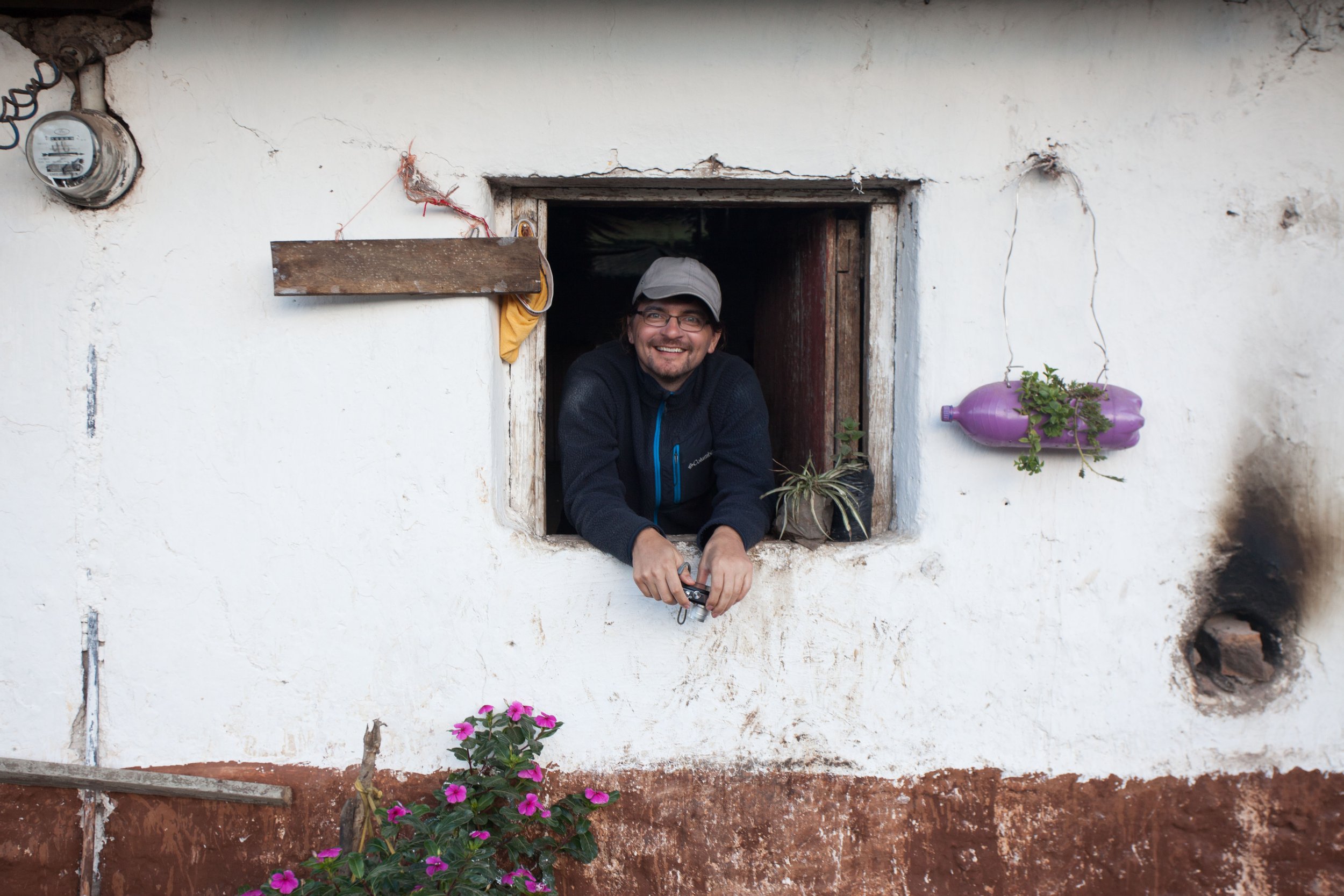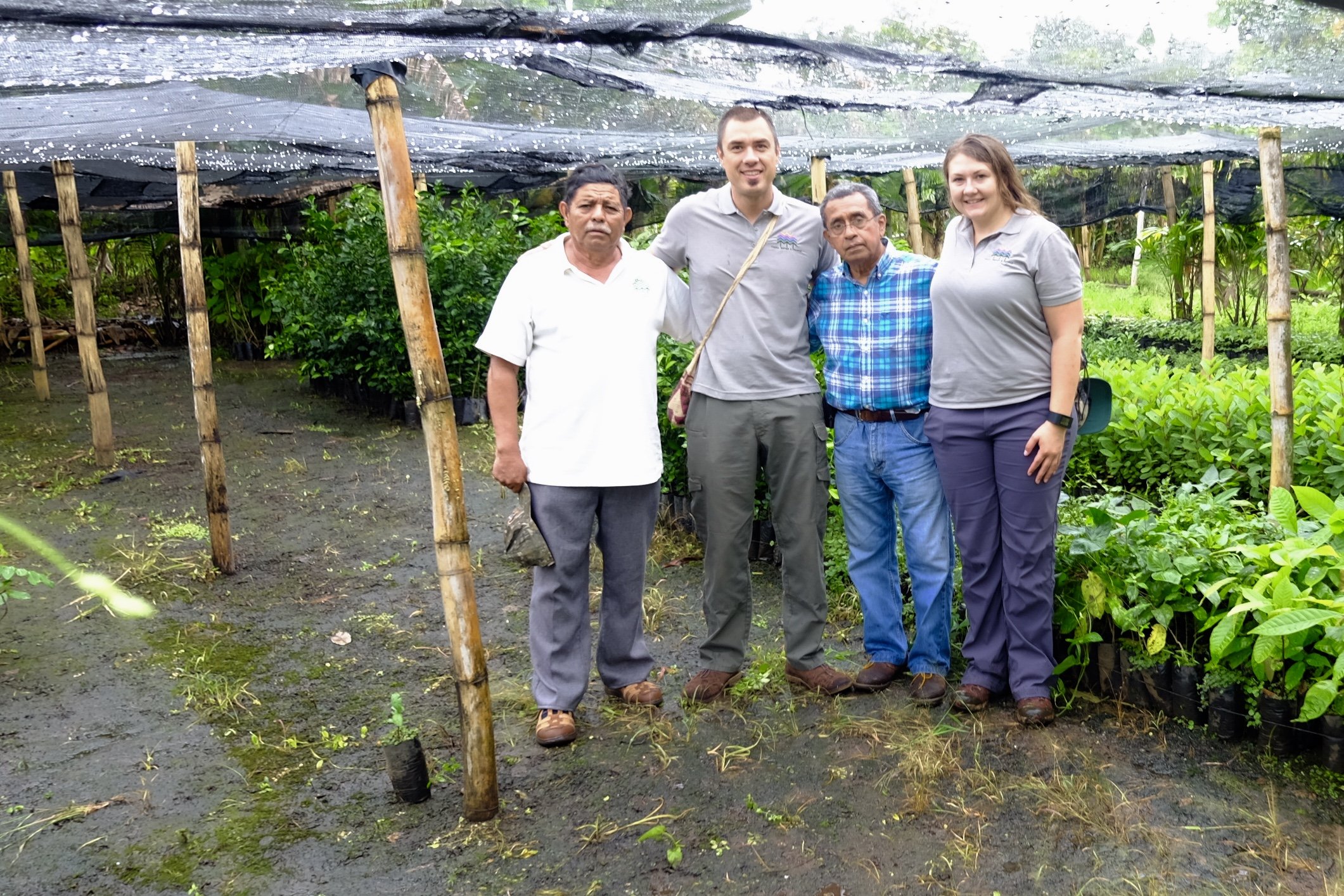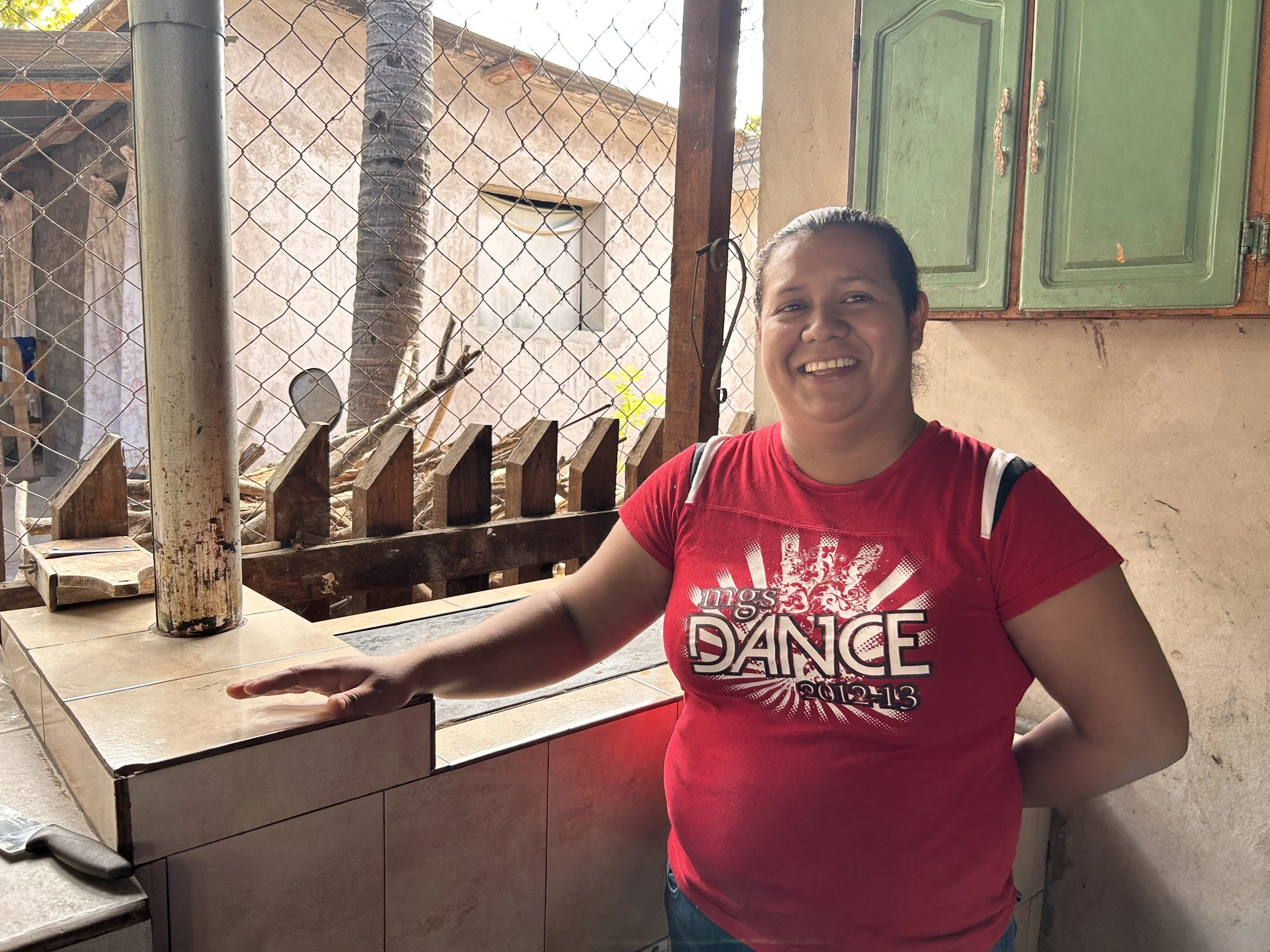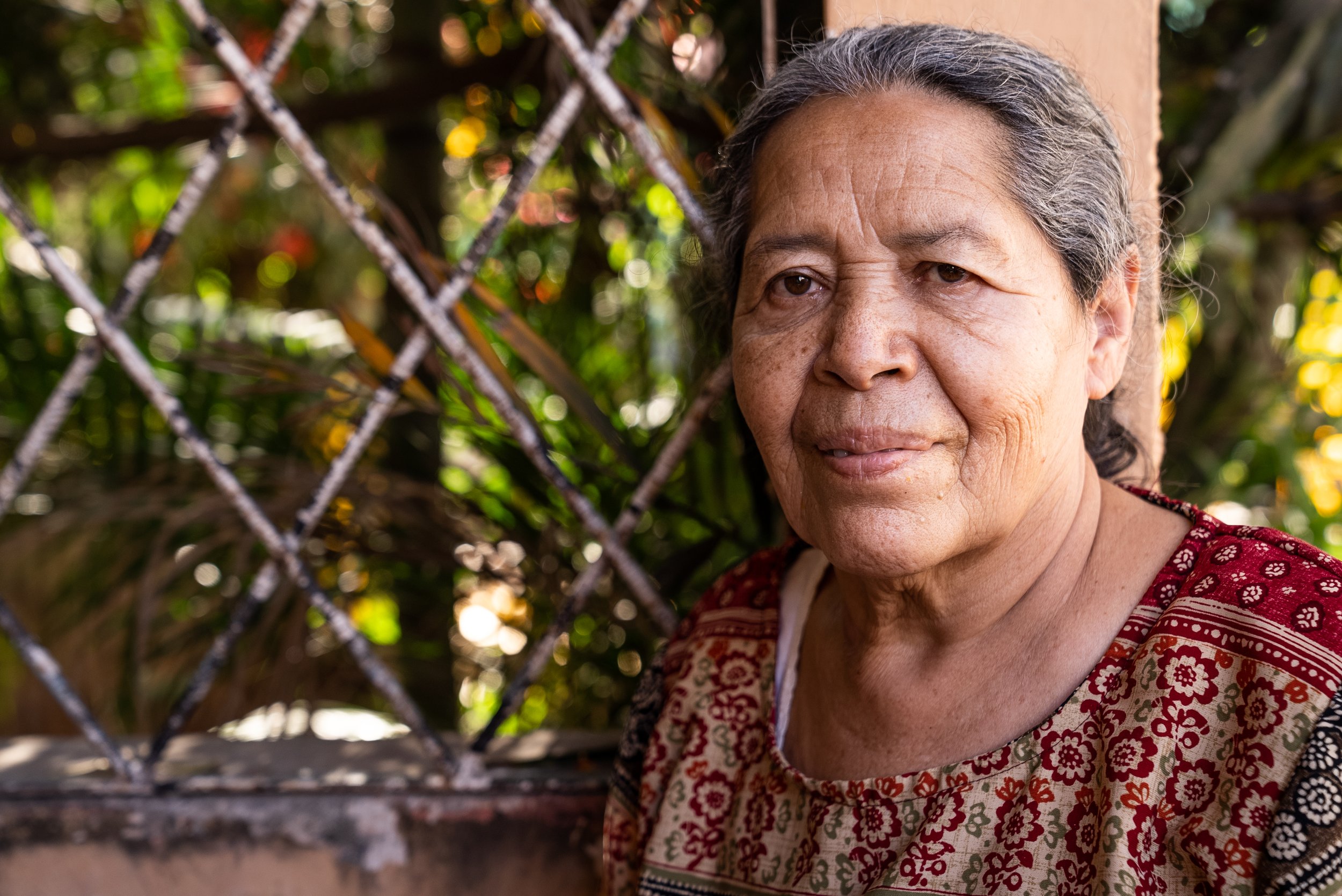This is The Way
In the early morning, we're preparing for an elk hunt on ancestral lands. Throughout our morning prayer, bull elk bugle in the background, harmoniously marinating with the majestic views. Lingering questions run through my mind. What will be the outcome of indigenous traditions in the future, will it be ancient history, diminished, forgotten? This question has been endured by our ancestors, to the present day, and will certainly be a feat in the future.
FUNDEBASE and TWP: Tackling food insecurity together in Guatemala
It is with joy that we share about the beginning of a pilot collaboration with the Foundation for the Development and Strengthening of Grassroots Organizations (FUNDEBASE) of Guatemala, as part of the goals of the TWP Central American Program to expand into new territories serving the most vulnerable communities in the region.
Mesoamerican Indigenous People and Local Communities Climate Week
Earlier this month we had the pleasure of hosting 13 of our partners and community leaders from Guatemala, Honduras and El Salvador at the first Mesoamerican Indigenous People and Local Communities Climate Week, which took place in Panama City.
Lucas Wolf
Back in 2014, I picked up the phone and called a candidate to support TWP’s Central America program. This individual was born and raised in Fort Collins, CO – TWP’s home base – but had been living in Central America after leaving a job with a USAID contractor in the U.S. As soon as he picked up the phone, I tested him by speaking to him in a flurry of Central American Spanish, to see how he would respond. Without missing a beat, he responded with a fluency and panache that made me smile ear to ear. I knew from that instant that I had called the right guy. Lucas Wolf came to TWP during a critical time, and as a master relationship builder, helped set the foundation for the organization’s next generation of leaders. In his three year journey to becoming the Director of the Central America Program, he left an indelible mark on all of us. His passing from heart failure at 36 years old impacted us all in ways we’ll never fully heal from, but inspired us to continue building the program and organization in his memory. - Sebas.
Enduring Partnerships
Our partnership with Árboles y Agua para el Pueblo (AAP) in El Salvador has been going strong for over 2 decades. Together, we have developed a grassroots-led conservation program that includes rainwater catchment cisterns, tree nurseries for reforestation and watershed protection work, clean cookstoves, dry-composting latrines, women's entrepreneurship initiatives and forest and spring protection.
Armando Hernandez
Armando Hernandez is the salt of the earth. As founder and director of our partner Árboles y Agua para el Pueblo (AAP), he has been humbly implementing projects with TWP since 2001. One of our favorite places on the planet is AAP’s tree nursery in El Porvenir, El Salvador, where we’ve grown hundreds of thousands of diverse seedlings over the years that today are providing habitat, food, shade, firewood, soil, and lumber to communities throughout the country. Knowing that a partnership between TWP and AAP has resulted in thousands upon thousands of trees that are more than two decades old is gratifying to say the least - especially when considering the human and ecological services that these trees help provide.
Clean Cookstoves for Economic Development
Abilio Garcia is a Maestro Fogonero and coordinator for our partner AHDESA in Honduras. He trains other Maestros Fogoneros so that they can have a stable job that they love. “In Honduras it is hard to find a stable job, so when you have one, you take care of it. I love what I do, I love serving people. It's great to see the happiness in someone's face when they are able to bring food home. The technicians who work with us are happy when they get paid for something they love to do.”
A Maestra Fogonera Leads a Network of Lenca Women in Honduras
At Trees Water and People (TWP) we recognize and value the fundamental role that women have historically played in agriculture, food production, and the development of their communities. To make decisions in these areas they have faced diverse challenges for the enjoyment and equality of rights for a dignified life.
Indigenous Sovereignty In Action
My last few months have been filled with exciting adventures and experiences. I was blessed to visit Central America in February, followed by a spontaneous trip to Washington DC last week. Both trips provided me with the opportunity to expand my lens in relation to what Indigenous Sovereignty means on a national and international scale.
Advancing Environmental and Human Health
For 25 years, we have been working with our partners and local community members to design clean cookstoves that greatly reduce deadly indoor air pollution, deforestation, and high fuel costs.The Justa Stove helps protect the environment and improves people’s health and economy.
Doña Justa
Doña Justa Nunez is one of the rare ones. Fed up with respiratory issues that plagued her and her friends in her community, she launched a women-led initiative to get smoke out of people’s kitchens. Driven by a vision of better health and a cleaner environment, she got the attention of nonprofit organizations working with her local church, who set out to design a better wood-burning cookstove in her village.
The Roots
The roots. Since TWP’s early days, migration has played a constant role in the social dynamics of Central America. The civil wars In Central America caused mass displacement of rural and Indigenous communities throughout the 1980’s and ‘90’s, and rural-to-urban migration began to accelerate. By investing in rural know-how and developing solutions such as clean household energy, reforestation, rainwater catchment and storage, and livelihood diversification (i.e. via agroforestry and spice value-chains), TWP has helped create jobs, improve health, and diversify income in areas that have been long neglected. Improving standards of living and connectivity in rural areas is one way TWP has helped slow outbound migration from these important agrarian economies.
Advocating for Gender Equity with Perseverance and Optimism
International Women’s Day gave us the opportunity to recognize and admire all the incredible women that have been part of our TWP family, and the new women leaders that have emerged through our work on the ground in Central America. This past February, our TWP team had the privilege to travel to Honduras, Guatemala, and El Salvador, where we were inspired by courageous women who continue to advocate, organize, and fight for more inclusive and equitable opportunities for their communities and future generations.
The Changing Roles of Women in Tribal Culture
Regina Lopez-Whiteskunk is a rockstar for Indigenous sovereignty, environmental justice, and gender equity and inclusion. She has been at the forefront of these initiatives in the southwest and has represented her Tribe as an everyday leader and previous member of the Tribal Council. A member of the Ute Mountain Ute Tribe, Regina grew up in southwest Colorado.
The Beginning
TWP is born. Trees, Water & People was cofounded in 1998 by Richard Fox and Stuart Conway, two foresters and friends who saw an urgent need to address the pervasive deforestation in Latin America. This vision quickly evolved as they realized the solution had to address the underlying causes of deforestation and benefit the people most affected by climate change. Twenty five years later, TWP is a leader in the design and implementation of programs that produce tangible benefits for people and the planet. Today, our work is more urgent than ever, as climate change threatens the livelihoods of millions of people in our region.
The Seeds
In the midst of the Guatemalan Civil War in the 1980’s, the Peace Corps continued sending volunteers to areas of the country unaffected by violence. Stuart Conway and Jenny Bramhall were a young married couple, and arrived in Guatemala with the same wide eyes, willing hands, and open hearts as many Peace Corps volunteers. While Jenny focused on the needs of women in their community, Stu leveraged his forestry training from Colorado State University to start local tree nurseries in areas surrounding his village. The seeds planted in those nurseries were the genesis of Trees, Water & People, which would start its work in Guatemala over a decade later.
The Sawdust Carpets of Suyapa
For decades, the community of Aldea de Suyapa has followed in a Latin American tradition of creating an Easter procession route through their community, marked by a series of sawdust carpets, designed and created by local youth. This is a tradition dating back hundreds of years, with strong continuity in Mexico and Central America.
Caring and Co-Existing With The Land
In today’s world, the term “environmental stewardship” has become heavily integrated into common language. We often hear about different approaches to protecting our lands, preserving our natural resources and ensuring that future generations will have the same access to these resources. The reach of this idea is so far and deep that it has become a global movement.
But this philosophy is not new.
Triquilapa and Cantagallo Declared a Wildlife Refuge
This month we celebrate alongside our partner the Ecological Committee of La Aldea de Suyapa (COEAS) the upcoming declaration by the National Congress of Honduras of the Triquilapa and Cantagallo Mountains as a Wildlife Refuge. The mountains of Triquilapa and Cantagallo are located to the east of the Central District, Honduras, ten minutes from the Aldea de Suyapa, also a cultural heritage of the country. These geological formations are the largest suppliers of water for La Aldea de Suyapa and surrounding communities, and have an endemic biodiversity of subtropical dry forest.
The Next Generation
What comes to your mind when you hear the word “Youth Development”? To us at TWP, we think of it as: acknowledging that the next generation will inherit the earth, and need to be involved in its care today.





















